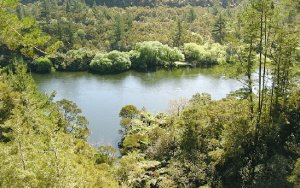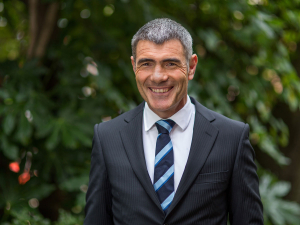Variation 6, effective this month, is designed to manage water allocation in the region in the face of competing demands from all sectors. The council's resource use and environmental monitoring committee recently received a report on Variation 6 implementation from council staff.
"It's good to hear council staff are advancing implementation plans for the new consents regime to make things as smooth as possible for farmers," committee chair Lois Livingston says.
The new policy affirms an existing requirement that any farmer taking more than 15m3/day for dairy shed wash-down and milk cooling must have a resource consent. It is likely farms with more than 215 cows will use more water than this, meaning some 3400 farms need a consent.
The council is developing a plan to handle the many consent applications anticipated. This planning is being done with, Federated Farmers and DairyNZ. It hopes to finish the plan by mid June.
Staff want to ensure "a clear, concise and simple process for the affected farmers", a report to the committee states.
Under Variation 6, farmers are "grandparented" their pre-2008 water take levels provided various conditions are met, including evidence showing the amount of water that was being taken prior to October 2008, lodging a consent application by January 1, 2015, excluding stock from waterways, and developing a riparian management plan (if the take is from surface water).
"The key message currently being conveyed to farmers is that so long as they engage with the council they can be confident of obtaining consent for the amount of water that was being used pre October 2008," the report says.
However, for operations that began or increased water use after 2008, the success of applications for more than 15m3/day would depend on range of factors including the existing allocation level in the catchment.
"In waterways and catchments where rivers and streams are already fully allocated, any new water take will require consent, even if it is less than 15m3/day," the report says.
Livingston says these factors underscore that anyone doing a dairy conversion or intensifying an existing operation should consider water availability.
"The scale and importance of the issues involved in implementing Variation 6 are vast, given that managing them well is essential to the environmental and economic health of our region. We are grateful [farmers] and other parties have been so willing to work with us on introducing Variation 6 in a coordinated way."
Meanwhile, the committee heard that immediately following the Environment Court decision on Variation 6, water-take consent applications had been received from two big agricultural concerns. These applications, together with existing applications, would, if granted, result in the allocation of the full amount of 'extra' water made available by the court between Lake Taupo and the Karapiro Dam.
When issuing its decision on Variation 6, the court increased the amount available from 3.6% to 5% of a river flow measure known as Q5, equivalent to increasing the allowable take from 5.3m3/sec to 7.4m3/sec.
The committee also heard that some farmers were irritated these two applications, which could effectively take all the extra water, were being dealt with on a first-in, first-served basis.
The committee was told this is not a matter over which the council has discretion. The law as it currently stands requires the applications to be treated this way. It would require a Supreme Court ruling to overturn the first-in, first-served principle.









